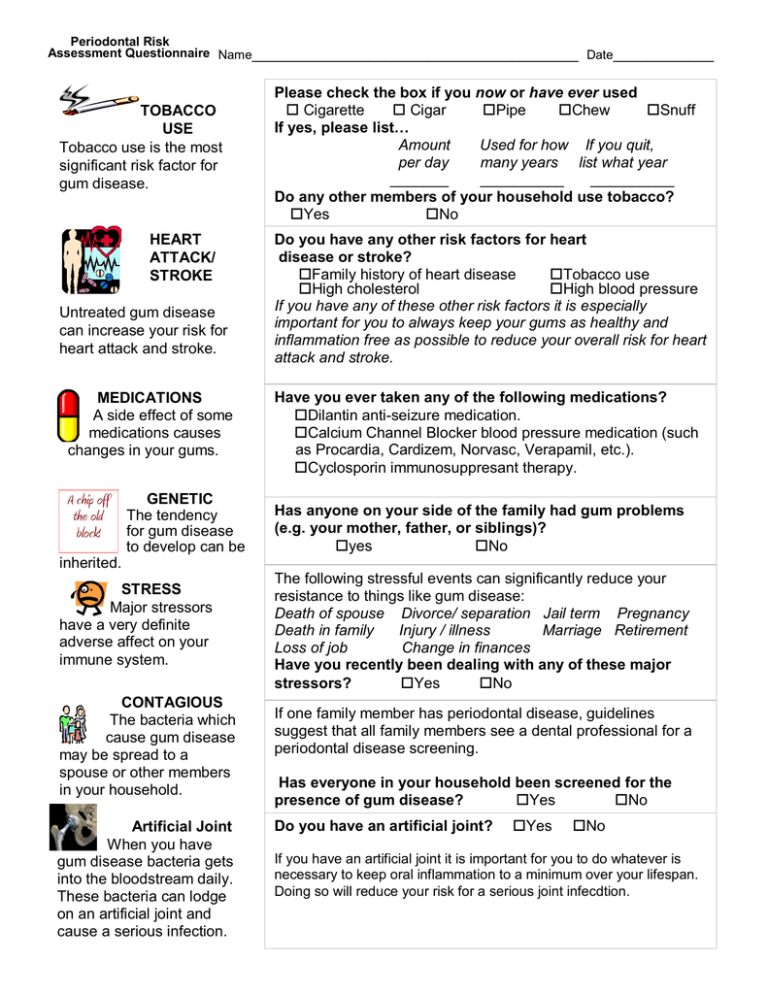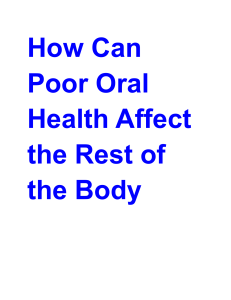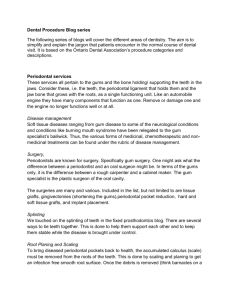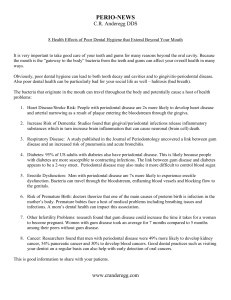Document 14018877
advertisement

Periodontal Risk Assessment Questionnaire Name_______________________________________ Date____________ TOBACCO USE Tobacco use is the most significant risk factor for gum disease. HEART ATTACK/ STROKE Untreated gum disease can increase your risk for heart attack and stroke. MEDICATIONS A side effect of some medications causes changes in your gums. A chip off the old block! GENETIC The tendency for gum disease to develop can be Please check the box if you now or have ever used Cigarette Cigar Pipe Chew Snuff If yes, please list… Amount Used for how If you quit, per day many years list what year _______ __________ __________ Do any other members of your household use tobacco? Yes No Do you have any other risk factors for heart disease or stroke? Family history of heart disease Tobacco use High cholesterol High blood pressure If you have any of these other risk factors it is especially important for you to always keep your gums as healthy and inflammation free as possible to reduce your overall risk for heart attack and stroke. Have you ever taken any of the following medications? Dilantin anti-seizure medication. Calcium Channel Blocker blood pressure medication (such as Procardia, Cardizem, Norvasc, Verapamil, etc.). Cyclosporin immunosuppresant therapy. Has anyone on your side of the family had gum problems (e.g. your mother, father, or siblings)? yes No inherited. STRESS Major stressors have a very definite adverse affect on your immune system. CONTAGIOUS The bacteria which cause gum disease may be spread to a spouse or other members in your household. Artificial Joint When you have gum disease bacteria gets into the bloodstream daily. These bacteria can lodge on an artificial joint and cause a serious infection. The following stressful events can significantly reduce your resistance to things like gum disease: Death of spouse Divorce/ separation Jail term Pregnancy Death in family Injury / illness Marriage Retirement Loss of job Change in finances Have you recently been dealing with any of these major Yes No stressors? If one family member has periodontal disease, guidelines suggest that all family members see a dental professional for a periodontal disease screening. Has everyone in your household been screened for the presence of gum disease? Yes No Do you have an artificial joint? Yes No If you have an artificial joint it is important for you to do whatever is necessary to keep oral inflammation to a minimum over your lifespan. Doing so will reduce your risk for a serious joint infecdtion.




